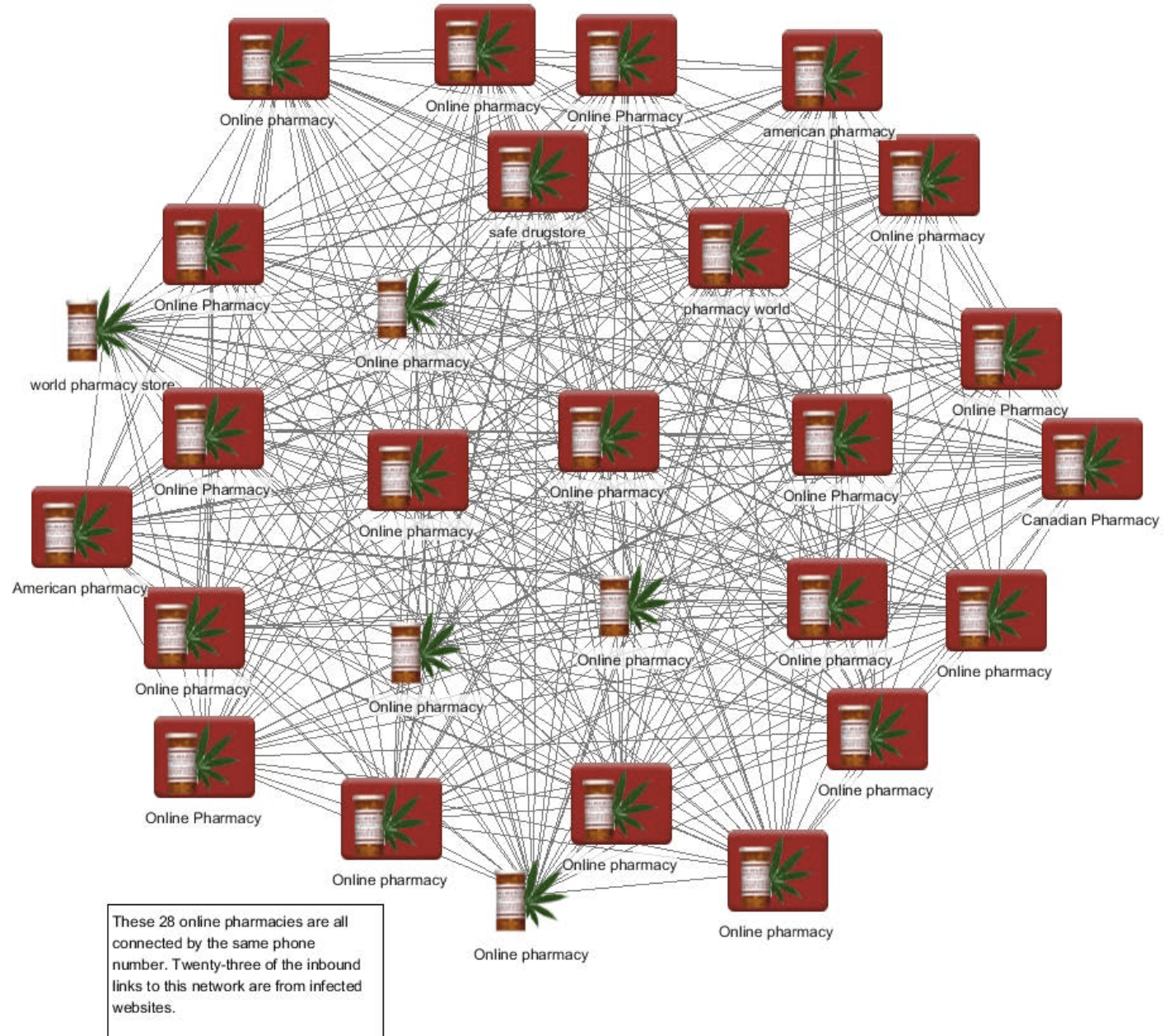We have performed terabyte-scale studies of internet tracking and of cybercrime networks, using a series of tools including Palantir Gotham, Palantir Contour, mitmproxy, STATA (Here is my STATA Cheat Sheet), Python, and a custom-built crawler.
This has led to several insights, including new forms of consumer tracking in the wild (flash cookies, cache cookies), the demonstration of how fragile cybercrime networks are to deterrence by denial approaches, and how online advertisers use rhetoric of individual choice in political theaters, while using clever coding to remove all forms of actual consumer choice in the technology domain.
Representative publications:
- Deterring Cybercrime: Focus on the Intermediaries, 32(3) Berkeley Technology Law Journal 1093 (2017)(with Damon McCoy, Amanda Maya and Aniket Kesari).
- Privacy and Adult Websites, Workshop on Technology and Consumer Protection (ConPro ’17), May 2017, San Jose, CA, with Ibrahim Altaweel and Maximilian Hils. (The security and privacy of adult websites is understudied and this is a problem given the amount of web use focused on such websites. In this paper, we show how sensitive preference data entered by users of pornographic websites are leaked in clear text to Google and to Russia-based Yandex, and how a specialized adtech network services adult entertainment sites.)
- Online Pharmacies and Technology Crime, in The Handbook of Technology, Crime and Justice (Michael McGuire and Thomas J. Holt, eds.) (Routledge Press 2017)(invited contribution)
- Web Privacy Census, Technology Science (2015) (with Ibrahim Altaweel and Nathaniel Good)(peer reviewed)
- Behavioral Advertising: The Offer You Cannot Refuse, 6 Harvard L. & Policy R. 273 (2012)(with Ashkan Soltani & Nathaniel Good). Received the 2014 CPDP Multidisciplinary Privacy Award.

